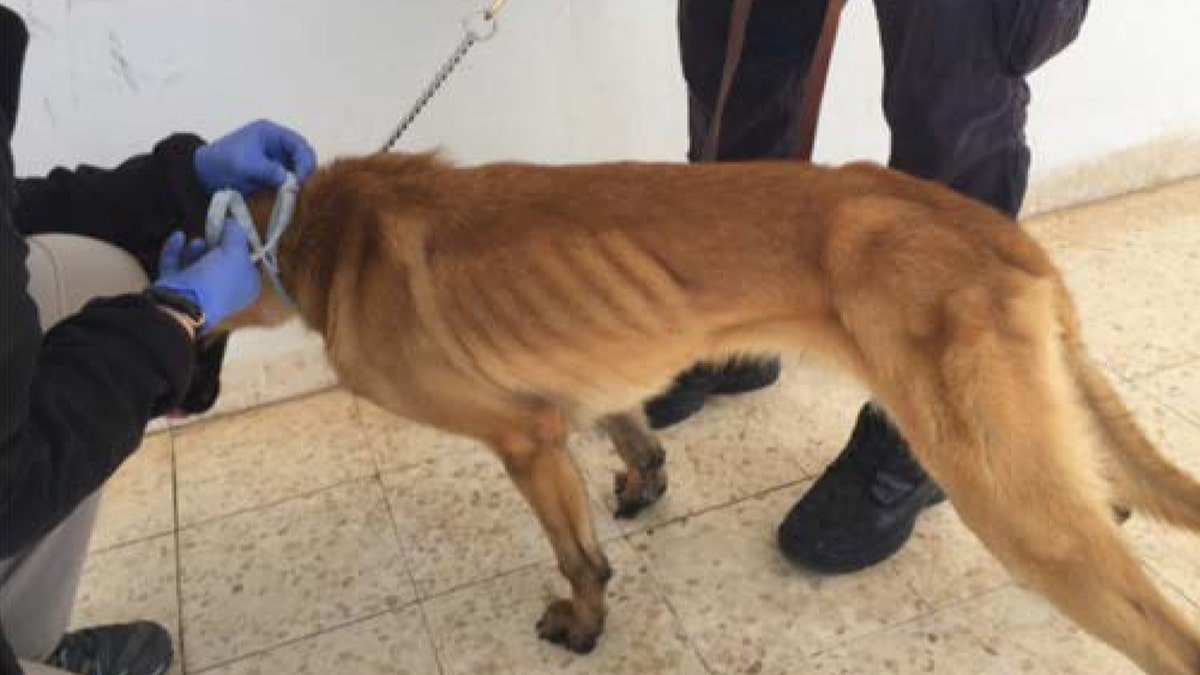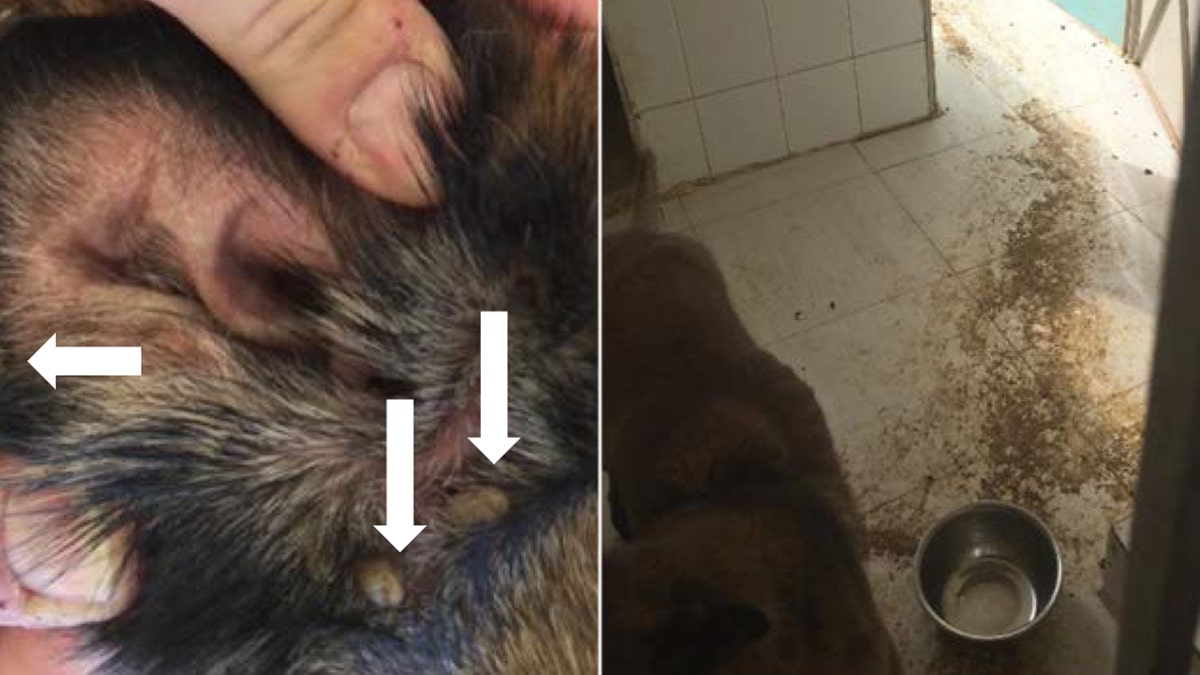Fox News Flash top headlines for Dec. 24
Fox News Flash top headlines for Dec. 24 are here. Check out what's clicking on Foxnews.com
The U.S. will temporarily halt its practice of sending bomb detection dogs to Jordan and Egypt over concerns about poor treatment following the recent deaths of two dogs, the State Department said Monday.
The decision follows a September report by the agency inspector general's office that detailed the deaths of two explosive detection canines, one from heatstroke and the other from poisoning by an insecticide.
A second report released Friday put the total number of overseas K-9 deaths due to improper care at seven.
US RECALLS AMBASSADOR TO ZAMBIA AFTER HE CRITICIZED JAILING OF GAY COUPLE: REPORT

An underweight Jordanian canine (left) and a dog whose nails went severely untrimmed. (U.S. State Department Office of Inspector General)
"The latest OIG report was a follow-on to that report, and we concur with the OIG recommendations to cease temporarily providing additional canines to Jordan and Egypt until those countries implement our requirements to ensure the canines’ health and welfare," an agency spokesperson told reporters Monday.
Zoe, a 2-year-old Belgian Malinois, died of heatstroke in July 2017 while working at the Syrian border with Jordan. A veterinarian consulted by the OIG said Zoe's death was the result of “negligence and improper care,” and not accidents.
In February 2018, Mencey, a 3-year-old Malinois, was diagnosed with a tick-borne disease and returned to the U.S., where he was diagnosed with another vector-borne disease that caused renal failure.
STATE DEPARTMENT OPENS MASSIVE NEW TRAINING CENTER, COMPLETE WITH FAKE TOWN, BURNING SIMULATOR

An underweight Jordanian canine. (U.S. State Department Office of Inspector General)
The Antiterrorism Assistance Program, which helps eight countries with border and aviation security, keeps around 135 dogs. Dogs already deployed to Jordan and Egypt will remain there while authorities continue to demand measures to ensure animal conditions, the State Department said.
At least 10 explosive detection canines sent to Jordan have died between 2008 and 2016. Experts traveled to Jordan to assess the dogs' conditions in 2016 after receiving a hotline complaint about substandard conditions.
CONAN, THE ISIS RAID DOG, LEADS LIST OF MOST HEROIC DOGS OF 2019
“Several canines were observed to have hip dysplasia and obvious arthritis, and have lost the will to work,” the watchdog report from September states. “No motivational training is provided to support the canines.”

An explosive detection canine became infested with ticks (left), and another canine, Athena, lived in a kennel covered in dirt and feces, without fresh water (right). (U.S. State Department Office of Inspector General)
The inspector general's office also found that dogs were sent to foreign partners without written agreements and no follow-up checks were done to make sure the animals were doing well.
CLICK HERE TO GET THE FOX NEWS APP
"To ensure all the programs were following our guidelines, we are working to visit every country in which we have explosives-detection canine programs and have requested greater embassy oversight," the State Department said.
Fox News' Melissa Leon contributed to this report


